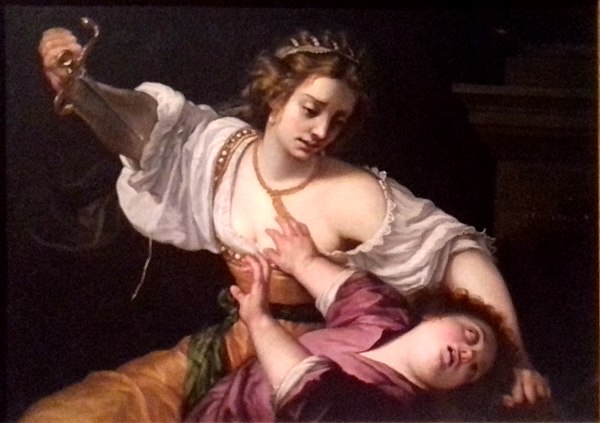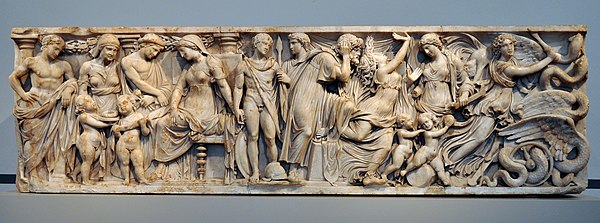Overview: Euripides’ Medea
Welcome to the comprehensive overview of Euripides’ timeless tragedy, Medea. This page will provide you with a glimpse into the fascinating world of the play, including its legendary origins, historical context, themes, characters, and lasting impact on literature and theater.
The plot of Medea revolves around the eponymous protagonist, Medea, who has been abandoned by her husband, Jason. Consumed by jealousy and a thirst for revenge, Medea devises a chilling plan to punish Jason and the woman he plans to marry. As the tragedy unfolds, the consequences of her actions reverberate through the lives of those around her, leading to devastating outcomes and a profound exploration of human nature.
The Legend of Medea
The story of Medea traces its roots back to ancient Greek mythology. Medea, a powerful sorceress and princess from Colchis, is best known for her role in Jason and the Argonauts’ quest for the Golden Fleece. She aided Jason in his journey, falling deeply in love with him and ultimately betraying her family to be with him. This legendary tale serves as the foundation for Euripides’ tragic masterpiece.
Historical Context
Medea was written by Euripides in 431 bce during the Golden Age of Athens, a time of immense cultural and intellectual flourishing. It was performed during the Peloponnesian War, a conflict that profoundly affected Athenian society and its artistic expressions. This context influenced the themes and messages conveyed in the play, offering a reflection of the anxieties and tensions of the time.
The war created an atmosphere of fear, uncertainty, and moral ambiguity, which likely influenced Euripides’ portrayal of the play’s themes and characters. By exploring themes such as betrayal, revenge, and the complexities of human nature, Medea reflects the anxieties and tensions of the time. The play serves as a reflection of the social and psychological challenges faced by the Athenians, providing a cathartic outlet for their collective emotions and offering insights into the moral dilemmas and ethical choices of the era.
Women in Athens
The patriarchal society of ancient Athens, where women had limited agency and were subject to societal expectations, shapes the challenges and conflicts faced by Medea as she navigates her circumstances. In ancient Athens during the time when Medea was written, women held a subordinate position in society, with limited rights and opportunities compared to men. The political realities of women in Athens were shaped by a patriarchal social structure and a legal system that favored male authority and control.
Women generally did not have the right to own or inherit property independently. Instead, property and wealth were typically passed down through male family members. Women were considered the property of their fathers or husbands, and their rights and privileges were largely dependent on the men in their lives.
Marriage played a significant role in the lives of Athenian women. It was viewed as a means of ensuring the continuation of family lineage and the production of legitimate heirs. Women were expected to marry and bear children, primarily sons, who would inherit the family name and property. Marriage was often arranged, and women had little say in choosing their partners.
Once married, women were subject to the authority of their husbands. They were expected to manage the household, bear and raise children, and maintain domestic duties. Women’s public presence was limited, and they were generally excluded from participating in political, legal, and public affairs.
The concept of citizenship, which held great importance in Athenian society, was exclusively granted to male citizens. Women were not considered citizens and were excluded from political participation, including voting and holding public office. Women, too, had limited access to formal education compared to men. Their education primarily focused on domestic skills and preparing them for their roles as wives and mothers. Intellectual pursuits and participation in public discourse were reserved for men.[1]
Medea challenges the societal expectations and constraints placed upon women in Athens. Her actions and defiance of traditional gender roles highlight the tensions and struggles faced by women in a patriarchal society. The play serves as a platform to critique and question the political realities and social limitations imposed on women, inviting audiences to reflect on the inherent power imbalances and injustices that existed within Athenian society.
Medea as Foreigner
The significance of Medea as a foreigner in Medea holds profound implications for the historical and political realities of ancient Athens. During the Golden Age of Athens, the city-state experienced a complex relationship with foreigners, shaped by both xenophobia and the need to maintain diplomatic alliances. As a foreigner from Colchis, Medea challenges the established social order in Corinth, where the play is set. Her presence in the city brings to the forefront the tensions and prejudices that existed between native Athenians and outsiders. The portrayal of Medea as an “other” emphasizes her foreignness and the potential threat she poses to the stability of the community.
By examining Medea’s foreign status, the play prompts a reflection on the treatment of outsiders and the dynamics of power. It raises questions about the marginalization and discrimination faced by individuals who do not conform to societal norms. The character of Medea serves as a catalyst for exploring the complexities of cultural identity, the consequences of prejudice, and the ethical responsibilities of a society toward those deemed foreign or different.
The portrayal of Medea as a foreigner also highlights the contrast between her position and the native Athenians. It underscores the struggles faced by those who exist on the fringes of society, providing a lens through which the audience can reflect on their own beliefs and attitudes towards outsiders. By challenging the Athenian audience’s preconceived notions and prejudices, Medea invites them to examine their own biases and the treatment of those considered foreign or different.
Medea as Greek Tragedy
Greek tragedy, a prominent form of theatrical performance in ancient Greece, held significant cultural and religious significance. Tragedies were performed during religious festivals to honor the gods and explore profound aspects of the human condition. Medea belongs to this tradition and exemplifies the power of Greek tragedy to probe deep into human emotions, moral dilemmas, and social dynamics.
Tragedies were performed during religious festivals and honored the gods, while also serving as a platform to explore profound aspects of the human condition. By situating Medea within this tradition, we understand its role in invoking collective emotions, engaging audiences in moral contemplation, and providing a communal experience that connected individuals to their cultural heritage.
Euripides
Euripides, one of the renowned ancient Greek tragedians, wrote Medea as part of his body of work that challenged conventional norms and beliefs. Euripides was known for his iconoclasm, which set him apart from his contemporaries and garnered both praise and criticism.
Euripides lived during a time of great intellectual and social change in Athens, marked by the questioning of traditional values and the emergence of new philosophical ideas. He used his plays as a platform to delve into the complexities of human nature and to challenge the established beliefs and moral codes of his society.
In Medea, Euripides delves deep into the psyche of the eponymous protagonist, exploring the depths of human emotion, the consequences of betrayal, and the extremes to which one can be driven by revenge. His portrayal of Medea as a complex and multidimensional character challenges the traditional expectations of women in Athenian society. She defies societal norms, becomes a powerful force of destruction, and confronts the audience with uncomfortable truths about the human capacity for violence and revenge.
Euripides’ motivation for writing Medea can be seen as a deliberate attempt to disrupt conventional narratives and provoke thought and debate among his audience. He sought to challenge the simplistic notions of heroism and villainy, exposing the complexities and contradictions inherent in human nature. Through the character of Medea, he explores themes of gender, power, justice, and the fine line between love and hate.
Furthermore, Euripides’ iconoclasm extended to his treatment of the gods and traditional religious beliefs. He introduced skepticism and ambiguity surrounding divine intervention and questioned the actions and motivations of the gods. This aspect is also evident in Medea, where the play highlights the tension between human agency and the influence of divine forces.
Euripides' innovative and provocative approach to storytelling and his willingness to challenge social and religious conventions contributed to his reputation as a radical playwright. His plays, including Medea, were characterized by their psychological depth, moral complexity, and the exploration of themes that resonated with the concerns and uncertainties of his time.
Major Themes
Medea explores a range of enduring themes that continue to resonate with readers today. The play delves into the destructive consequences of betrayal and the relentless pursuit of revenge. It challenges traditional gender roles, questioning the dynamics of power within relationships. Through the character of Medea, it raises thought-provoking questions about otherness, discrimination, and the treatment of outsiders. Additionally, Medea delves into the complexities of motherhood, examining the depths of maternal love and the moral dilemmas it can entail. These themes form the foundation of the play’s exploration of human nature, morality, and societal norms, inviting readers to reflect on the complexities of the human experience.
Major Characters
Medea features a cast of compelling characters whose actions and motivations drive the narrative. At the center of the play is Medea herself, a passionate and vengeful sorceress who has been betrayed by her husband, Jason. Jason, Medea’s former husband, plays a crucial role in the story as he abandons her for another woman, Glauce (unnamed by Euripides), the princess of Corinth. Creon, the ruler of Corinth and Glauce’s father, adds further complexity to the plot. Aegeus, the king of Athens, also plays a significant part in Medea’s escape plan. Each character brings their unique perspectives, desires, and conflicts to the forefront, contributing to the rich tapestry of Medea and creating a dynamic interplay of motivations and consequences.
Legacy and Influence
Medea continues to captivate audiences and influence literature and theater to this day. Its exploration of intense emotions, complex characters, and profound moral dilemmas has made it a timeless masterpiece. The play has inspired numerous adaptations, retellings, and reinterpretations across different art forms, showcasing its enduring relevance and its ability to provoke thought and discussion.
Additional Reading
note
- ↑ It is important to note that while these were the prevailing political realities for women in Athens, there were exceptions and variations based on individual circumstances and social status. Some elite women enjoyed greater privileges and autonomy, particularly within their households. Priestesses and women from wealthy families might have had more influence and involvement in certain religious and social roles.



